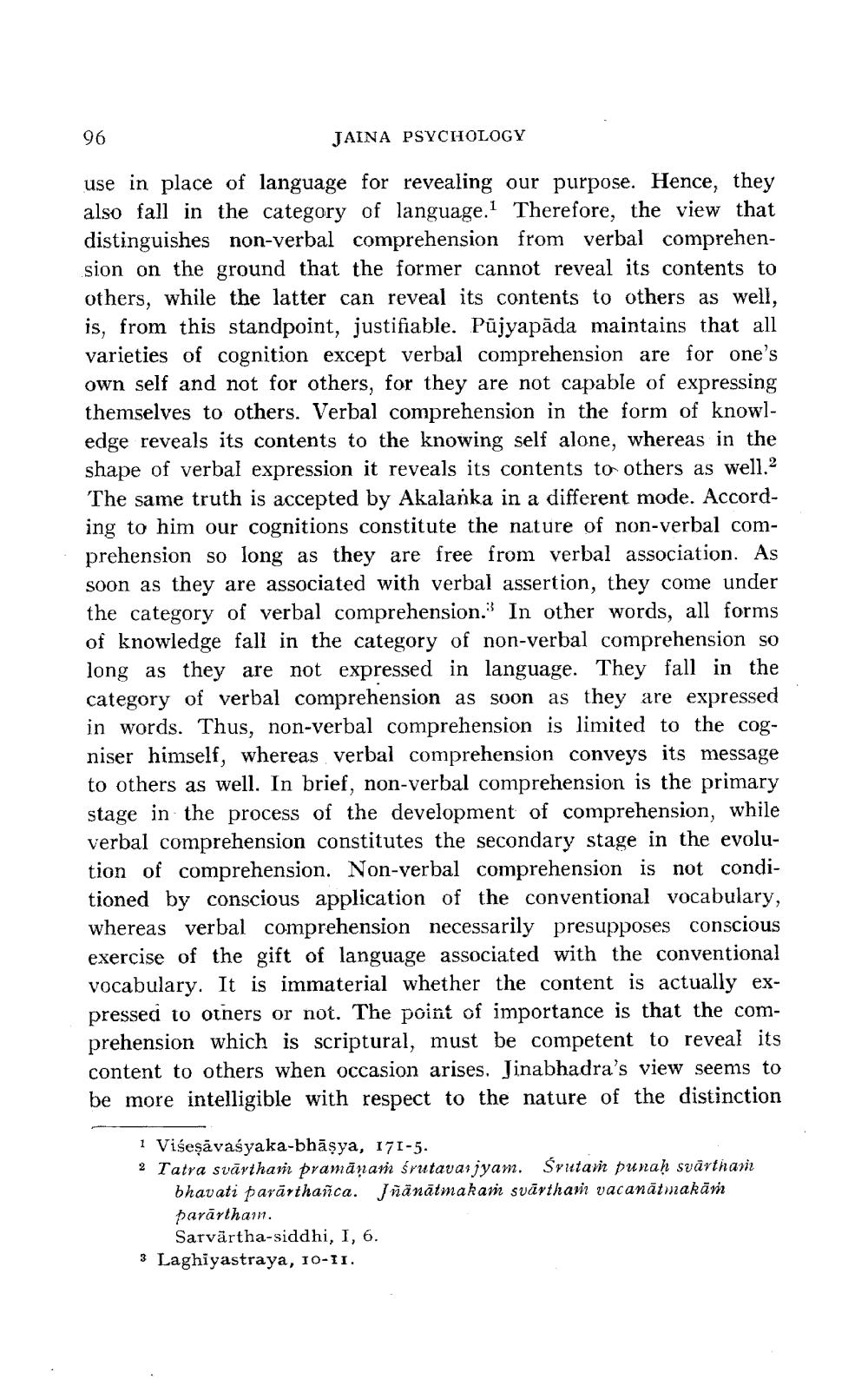________________
96
JAINA PSYCHOLOGY
use in place of language for revealing our purpose. Hence, they also fall in the category of language. Therefore, the view that distinguishes non-verbal comprehension from verbal comprehension on the ground that the former cannot reveal its contents to others, while the latter can reveal its contents to others as well, is, from this standpoint, justifiable. Pujyapāda maintains that all varieties of cognition except verbal comprehension are for one's own self and not for others, for they are not capable of expressing themselves to others. Verbal comprehension in the form of knowledge reveals its contents to the knowing self alone, whereas in the shape of verbal expression it reveals its contents to others as well.2 The same truth is accepted by Akalanka in a different mode. According to him our cognitions constitute the nature of non-verbal comprehension so long as they are free from verbal association. As soon as they are associated with verbal assertion, they come under the category of verbal comprehension." In other words, all forms of knowledge fall in the category of non-verbal comprehension so long as they are not expressed in language. They fall in the category of verbal comprehension as soon as they are expressed in words. Thus, non-verbal comprehension is limited to the cogniser himself, whereas verbal comprehension conveys its message to others as well. In brief, non-verbal comprehension is the primary stage in the process of the development of comprehension, while verbal comprehension constitutes the secondary stage in the evolution of comprehension. Non-verbal comprehension is not conditioned by conscious application of the conventional vocabulary, whereas verbal comprehension necessarily presupposes conscious exercise of the gift of language associated with the conventional vocabulary. It is immaterial whether the content is actually expressed to others or not. The point of importance is that the comprehension which is scriptural, must be competent to reveal its content to others when occasion arises. Jinabhadra's view seems to be more intelligible with respect to the nature of the distinction
1 Viseşāvasyaka-bhāşya, 171-5. 2 Tatra svārtham pramānam śrutavarjyam. Svutavin punaḥ svärthari
bhavati parārthañca. Jūānātmakam svārthavn vacanätmakām parārtham.
Sarvārtha-siddhi, I, 6. 3 Laghiyastraya, 10-11.




